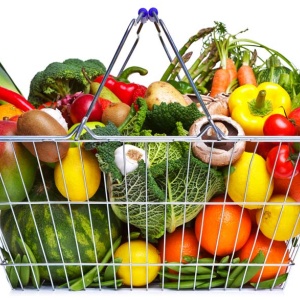
A new study published in Science has consolidated data on five environmental impact categories (land use, freshwater withdrawals weighted by local water scarcity, climate change, acidification and eutrophication) for 40 agricultural goods from over 38,000 farms. It finds that the environmental impacts of producing the same food are highly variable between different farms. It also finds that the environmental impacts of animal products are generally higher than plant-based products.
The paper points out that the large variation in impacts for a given product means there is room for improvement on the production side. For example, the 90th percentile greenhouse gas and land use impacts for beef are 12 and 50 times greater, respectively, than the 10th percentile impacts for beef produced from a dairy herd (since, among other things, emissions from the animals in question will be allocated between the milk and the beef ‘outputs’ of the system). The authors recommend that producers reduce their impacts by monitoring their impacts across multiple categories, setting reduction targets, choosing different farming practices to meet these targets, and communicating their impacts along the supply chain.
However, according to the paper, the potential of changing farming practices to reduce impacts is limited unless the type of food being farmed is also changed. In particular, the lowest impacts of animal products are generally higher than the average impacts of plant-based proteins, per gram of protein. The authors identify five factors underlying the higher greenhouse gas emissions of animal products:
- Edible protein obtained from animal products is generally less than half the amount of protein contained in the feed fed to the animals
- Deforestation for agriculture is mostly for animal feed production
- Animals create emissions from their digestive systems
- Slaughterhouse emissions generally exceed processing emissions for other products
- Waste levels are high for fresh animal products (however, we note that waste levels are also high for some plant-based products such as bread and vegetables - the paper does not give a direct comparison).
The results show that switching to a fully plant-based diet could reduce food’s global impacts by the following percentages:
- 76% for land use (including a 19% reduction in arable land use)
- 49% for greenhouse gas emissions
- 50% for acidification
- 49% for eutrophication
- 19% for scarcity-weighted freshwater withdrawals.
The majority of these impact reductions could still be achieved in an alternative scenario that replaces only half of animal products (those with above-average impacts for their product category) with plant-based equivalents.
Abstract
Food’s environmental impacts are created by millions of diverse producers. To identify solutions that are effective under this heterogeneity, we consolidated data covering five environmental indicators; 38,700 farms; and 1600 processors, packaging types, and retailers. Impact can vary 50-fold among producers of the same product, creating substantial mitigation opportunities. However, mitigation is complicated by trade-offs, multiple ways for producers to achieve low impacts, and interactions throughout the supply chain. Producers have limits on how far they can reduce impacts. Most strikingly, impacts of the lowest-impact animal products typically exceed those of vegetable substitutes, providing new evidence for the importance of dietary change. Cumulatively, our findings support an approach where producers monitor their own impacts, flexibly meet environmental targets by choosing from multiple practices, and communicate their impacts to consumers.
Reference
Poore, J. and Nemecek, T., 2018. Reducing food’s environmental impacts through producers and consumers. Science, 360(6392), pp.987-992.
Find the full paper here. See media coverage of the study in the Guardian here: Avoiding meat and dairy is ‘single biggest way’ to reduce your impact on Earth.
You may also be interested in the 2017 paper Systematic review of greenhouse gas emissions for different fresh food categories. See also the Foodsource chapter Environmental impacts of food: an introduction to life cycle assessment.







Post a new comment »